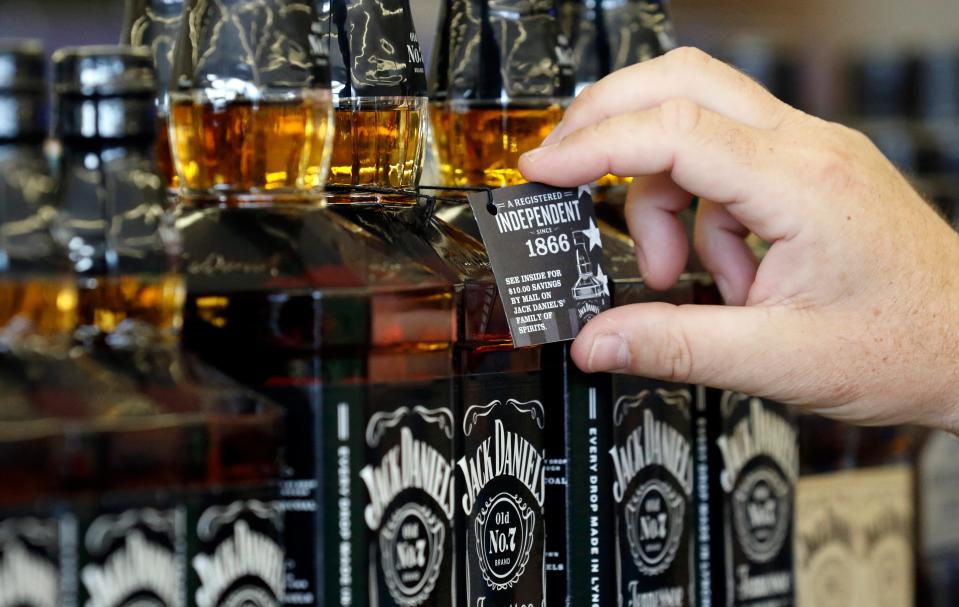Have questions about local liquor options on your ballot? We have you covered
CHILLICOTHE - There is one liquor option on the ballot for the March 19 primary, but what does it mean when you see these options?
Let's break it down for you with the help of the Ohio Department of Commerce Division of Liquor Control.
Firstly, in Ross County some voters will see this in March:
Ironsides Social Riders - (Precinct Paxton Bainbridge)
The ballot states: Local Liquor Option for Sale of Beer By C and D Permit Holders (By Petition). A majority affirmative vote is necessary for passage. Shall the sale of beer as defined in section 4305.08 of the Revised Code under permits which authorize sale for on-premises consumption only, and under permits which authorize sale for both on premises and off-premises consumption, be permitted within this precinct, Paxton Bainbridge?
Early voting is now underway in Ohio for the primary.
According to the Division of Liquor Control, it was following the repeal of Prohibition in 1922 that a new system was put in place, "to ensure the safe consumption of alcoholic beverages and an orderly, competitive marketplace." A part of that system was the local option (wet/dry) laws which gave voters in their precincts the determination of what types of alcohol get sold, including where, when, and how.
Here is the breakdown of the types of general decisions that can be made by voters.

What types of alcohol can be sold: Those types are beer, wine, mixed beverages, and high-proof spirits.
How it can be sold: Carryout only (to go) or for on-premises consumption (dine-in)
When it can be sold: Monday through Saturday (regular sales) and/or Sunday too
Where it can be sold: Precinct-wide or site-specific to a particular location for that specific business that secured the vote
What permits are affected?
Generally, local option election laws apply to most retail permits in Ohio like carryout (C class) and on-premises (D class) permits. These permit types are most associated with bars, restaurants, and carryout stores. Most of Ohio’s temporary permits (F class), which are for qualifying organizations to have limited duration events like your fish fry, 5K race, or other charitable fundraiser, are also subject to Ohio’s wet/dry laws, according to the Division of Liquor Control.
Local option election laws don’t apply to most manufacturers or distributors. For example, your local brewery or winery that only makes and sells its products is not subject to Ohio’s wet/dry laws. Some exceptions include the A-3a permit (micro-distillery), A-1a permit (allows qualifying manufacturers to offer alcoholic beverage products beyond what they produce for on-premises consumption at their business); and the A-5 permit (ice cream makers with alcohol in the product).
Even if sales can occur Monday through Saturday, whether those same privileges apply on Sundays is another question. To sell intoxicating liquor, which is all things other than beer, on Sundays, a D-6 permit is needed. Thus, the ability to sell any alcoholic beverages on Sunday may require a D-6 permit in addition to the location/precinct being wet to sell certain products like beer or intoxicating liquor on Sundays.
What happens if the option passes?
Ohio law requires the county Board of Elections to send the Division of Liquor Control the certified results within 30 days. Once received, the division will process them in accordance with Ohio law. In some cases, even though the question passed, the permit may not be issued for reasons such as:
The business name listed on the ballot doesn’t match our records or the Ohio Secretary of State’s records.
For site-specific votes, the business address doesn’t match our records.
The wrong question was put on the ballot
The wrong voters voted.
Didn’t meet other application requirements unrelated to local option elections.
The local government objected to the permit issuance,
The business lost tenancy at the address, and/or
People involved in the business had criminal records that negatively impacted their ability to get the permit.
There are no permits available due to Ohio’s quota system.
This article originally appeared on Lancaster Eagle-Gazette: One local liquor options in March: What you need to know

